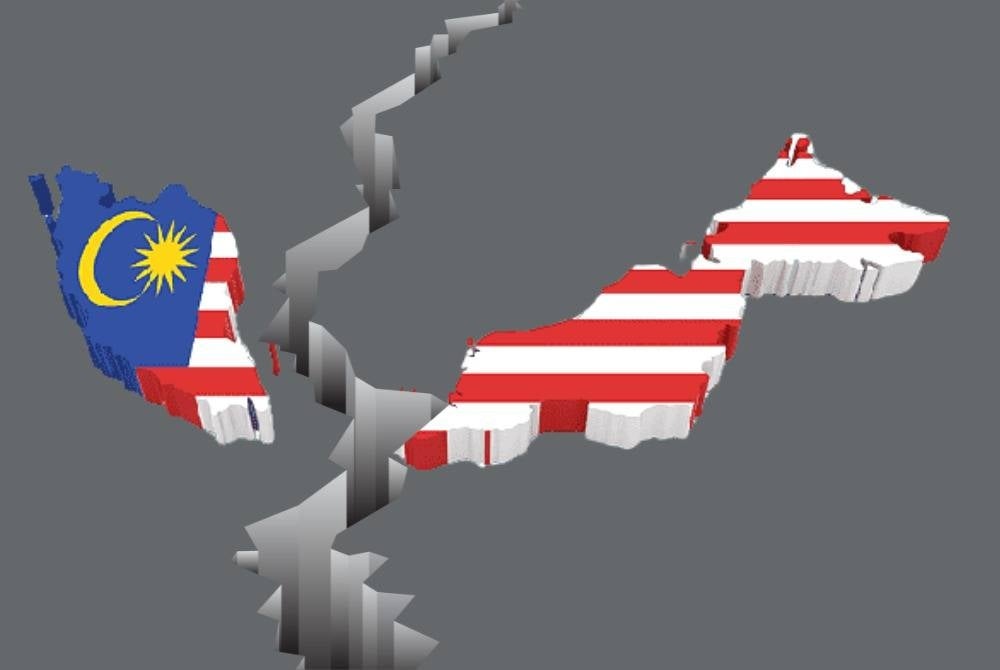Why Sabah and Sarawak MPs are 'not on the same page' with Federal Government?

SHAH ALAM - Malaysia's two eastern states, Sabah and Sarawak, have consistently disagreed with the Federal Government, resulting in a lack of consensus among their MPs.
This discord stems from historical grievances and the perception that the Federal Government has encroached upon the autonomy promised to Sabah and Sarawak upon their entry into the Malaysian federation in 1963.
Historical Context and Unfulfilled Promises
Sabah and Sarawak agreed to form Malaysia with Tanah Melayu and Singapore with the understanding that they would retain a degree of autonomy in various matters, including immigration and natural resources management.
However, over the years, there have been instances where the federal government's actions have been perceived as undermining this autonomy, fueling dissatisfaction among Sabah and Sarawak MPs.
Key issues highlighting the discord:
1. Sabah Government's Composition Questioned
On Aug 20, Sabah Umno election director Jeffery Nor Mohamed's statement that the current Sabah government cannot be considered a unity government highlights the political dynamics within the state and the complexities of inter-state relations.
2. Tuaran MP's Threat over Special Grant
Tuaran MP Wilfred Madius Tangau's warning to the Federal Government on Oct 30 over a special grant for Sabah highlights the ongoing tensions and disagreements over financial matters and resource distribution between the two parties.
3.Sarawak Minister's Push for English Correspondence
On Oct 26, Deputy Public Health, Housing and Local Government Minister Michael Tiang's insistence on the use of English in official correspondence highlights the linguistic diversity and cultural sensitivities within Sarawak.
4. Sarawak Minister Denounces Tobacco GEG as ‘Unconstitutional’, ‘Unenforceable’
On Nov 16, Tourism Minister and Sarawak Tiong King Sing, in attacking previous government, slams the tobacco bill with the generational end game (GEG) and questions the link between smoking and cancer, which was proven back in the 1940s and 50s. Cigarette smoking causes about 90 per cent of lung cancer cases.
5. Sabah MP's Denial of Hamas Support:
The statement by Sabah MP Ewon Benedick on Nov 20 that there are no discussions to support Hamas reflects the diverse views and priorities of Sabah MPs, particularly concerning international affairs.
Political Analyst's Perspective: Autonomy, Not Miscommunication
Explaining why eastern states MPs are seen objecting to the Federal Government, political analyst James Chin dismissed the notion of a 'miscommunication' among Sabah and Sarawak MPs with peninsular Malaysia, shedding light on the underlying dynamics of the situation.
Chin argues that the perceived 'miscommunication' is a deliberate policy by Sabah and Sarawak MPs to assert their autonomy, consistent with the promises made during the formation of Malaysia in 1963.
"There is no miscommunication, that is a deliberate policy by the MPs in Sabah and Sarawak to seek more autonomy from the federal government and this is consistent on what they were promised, when they help to form the federation of Malaysia in 1963," he said.
He also highlights the concerns over the increasingly toxic racial politics in peninsular Malaysia, which further drives the pursuit of autonomy in Sabah and Sarawak.
Historical Grievances and Demands for Autonomy
Ching stresses that Sabah and Sarawak MPs feel they have been 'bullied' by peninsular Malaysia for the past 15 years, with their demands for greater autonomy rooted in historical grievances and unfulfilled promises.
Specific demands include complete autonomy in health and education issues, as well as an increase in parliamentary seats.
These demands, rooted in historical agreements, are considered non-negotiable by Sabah and Sarawak MPs.
"I don't think it can be seen as the MPs in Sabah and Sarawak are not in the same page, they should be seen as in Sabah and Sarawak are bullied by Semananjung Malaysia for the past 15 years.
"Up to 2008 their demands was not taken seriously, there were attempts to acclimate them which was never their invention of the North Borneo Sarawakians with the help of Malaysia.
"So all this is coming back to bite the Peninsular Malaysia because of the over-centralisation of power over the former prime minister Tun Dr Mahathir Mohamad years," he said.
Conclusion: Ongoing Pursuit of Autonomy
Ching speculates that Prime Minister Datuk Seri Anwar Ibrahim's tenure could see some progress in addressing these demands, highlighting the ongoing nature of the historical grievances and the pursuit of autonomy by Sabah and Sarawak.
The discord between Sabah and Sarawak MPs and the federal government underscores the complex dynamics of Malaysian politics and the challenges faced in balancing regional aspirations with national unity.
Download Sinar Daily application.Click Here!















